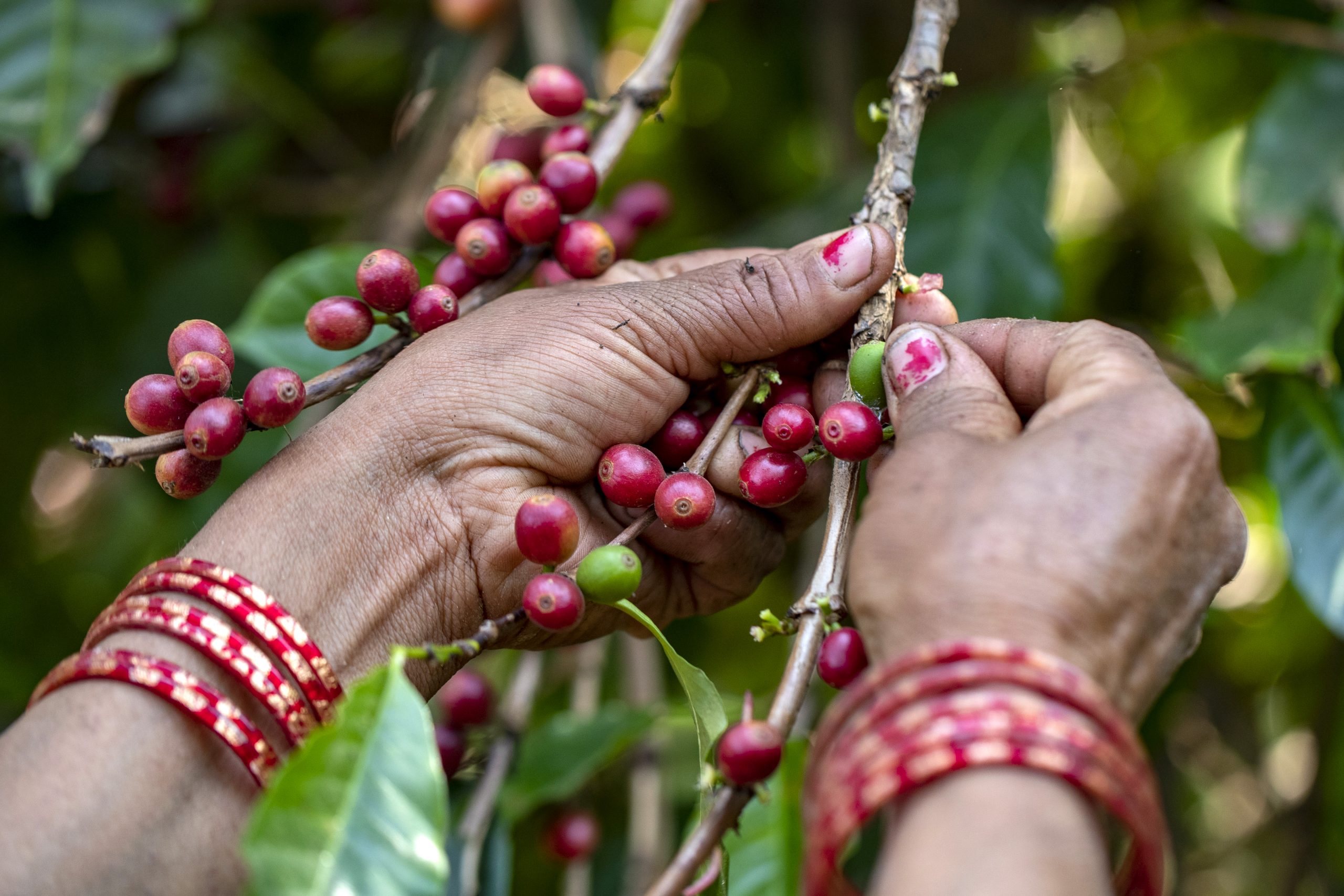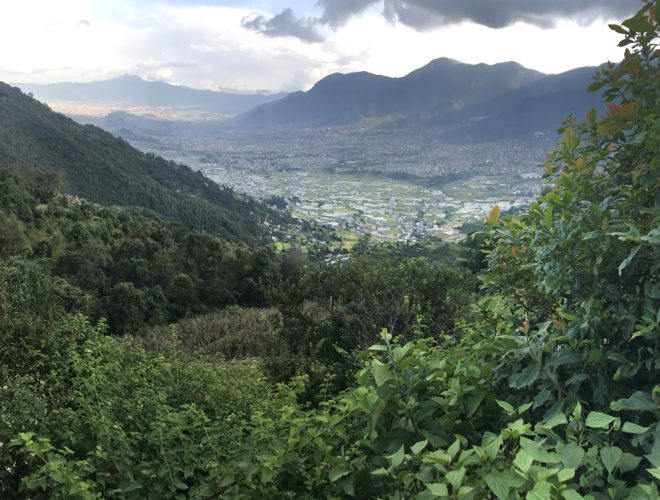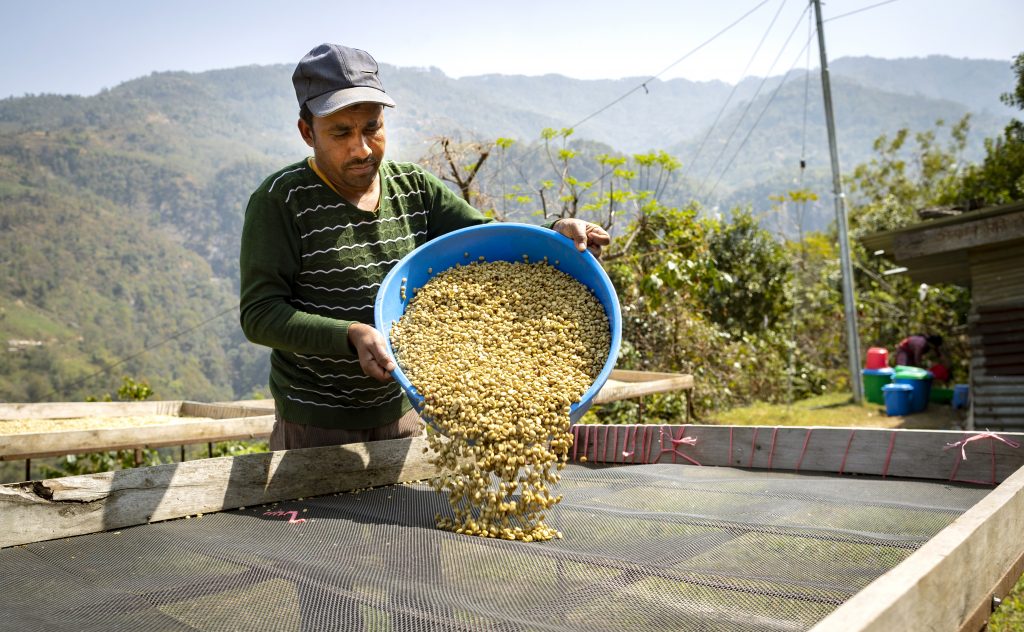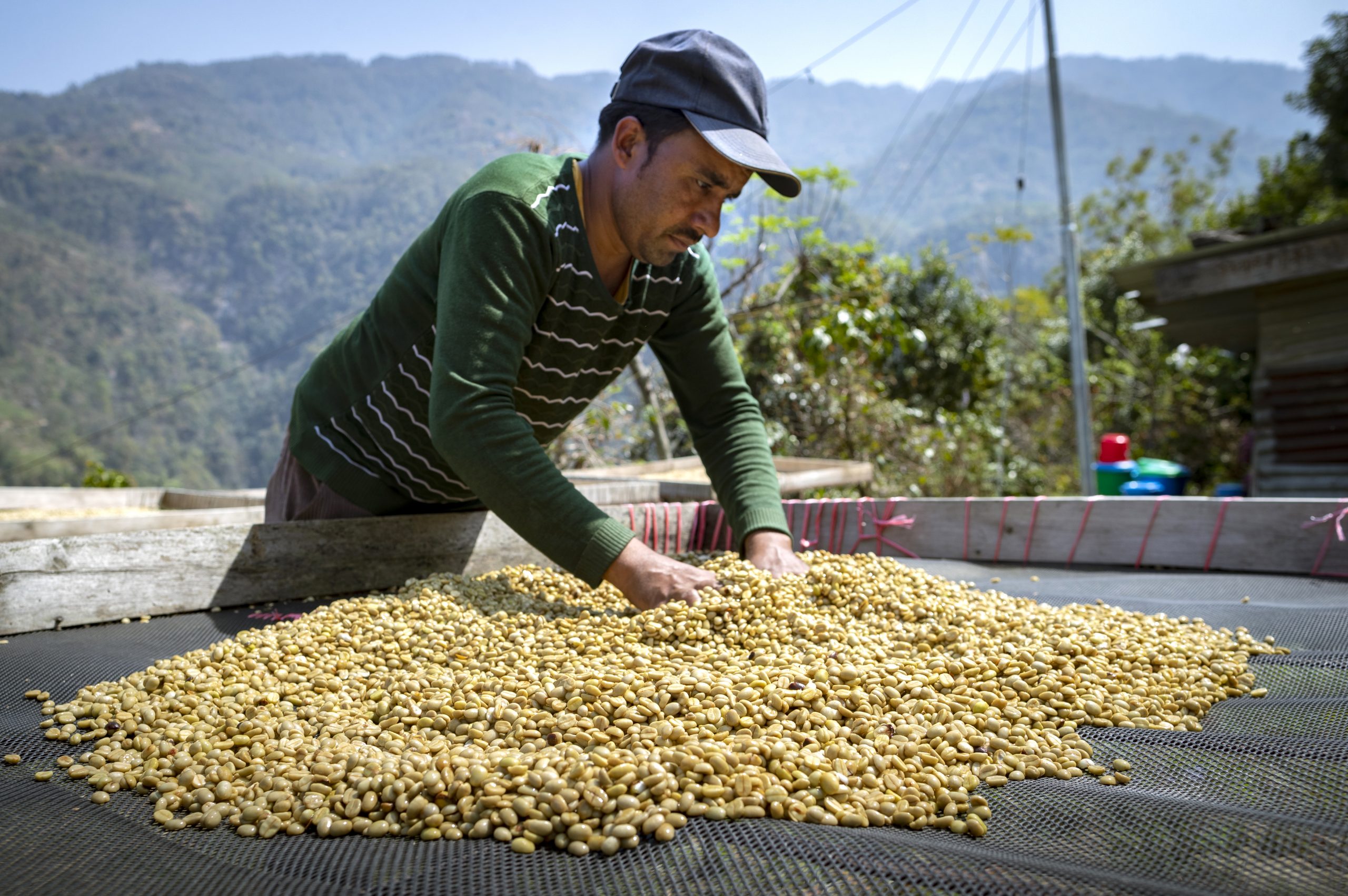In 2020, we established Nepal Coffee Estate in the mid hills of Belkot Gadi, Nuwakot, Nepal.
We have several hectares of rich, brown soil in a landscape rich in beauty and natural wonders. Our farm enjoys a temperate climate and altitude of 1,400m above sea level. The bright, green coffee leaves and red cherries are even more vibrant against the vivid white-capped mountains, blue skies, and lofty clouds.
We grow Arabica Typica and Caturra using sustainable, organic coffee farming practices. We will produce washed coffee with limited amounts of natural and honey. Our coffee is dried on tables in the sun. We will be ready to harvest in 2024.
Nepal Coffee Estate employs five workers, including two women, who care for our original 500 trees planted under shade in 2020. In 2022, we will plant 7,000 coffee seedlings, and will employ more people then.
In 2025, we will sell green beans, roasted beans, and ground coffee domestically, as well as to Japan, Korea, U.S., Australia, Norway, and the Middle East.
Our products are 100% certified organic by USDA. All our coffee is free from any chemicals, pesticides, or chemically balanced fertilizers. We continue to strive towards our commitment to provide the best certified organic coffee in Nepal.
Supporting farming livelihoods
Many of our farmers are small-scale, bringing in 100-200 kg coffee a year. Some have been working with us for 30+ years. There is now a second generation of farming relationships. They have brought us coffee for many years and continue to do so because we have built trust and good relationships.
We aim to improve farmer livelihoods and pay higher-than-market rates for their coffee cherries. We also pay in advance to help them manage their finances and logistics.
For some farmers, this is their main source of income that puts food on the table, for others, it’s a little extra income to improve their lives and help put their children through school.
We encourage our farmers to consider the long-term benefits of sending their daughters, as well as sons, to school, and we sponsor their education. Currently, we cover the education costs for all our employees’ children up to grade 10.
In the future, we plan to:
- open a coffee institute at the farm to train locals in growing coffee. Currently, we train on an ad hoc basis but our goal is to provide regular training on processing and quality
- have childcare facilities onsite to support working mothers with children aged 0-5 years
- donate shoes to local farmers and their families. This is an ongoing initiative, and we manufacture and donate school shoes, slippers, and sneakers here in Nepal.
Organic, shade grown coffee
Our high quality, organic, shade grown coffee is an outcome of careful, sustainable farming. We are proud to empower small individual farmers, as well as some of the largest coffee cooperative unions in Nepal.
All our coffee is 100% USDA certified organic, since 2008. All the big farms we work with are also certified organic.
USDA certified organic foods are grown and processed according to guidelines on soil quality, pest and weed control, and use of additives, among other factors.
NCC also gives technical support to farmers. We help to test soil nutrients and water quality and provide expert advice on growing healthy plants.
Our coffee is planted under fruit trees and spices. Shaded farming of multiple crops or intercropping keeps the soil healthy, maintains moisture retention and helps preserve biodiversity.
We provide mulch and manure to our farmers free of charge, made with locally available plant materials and livestock by-products.


Future plans
We are busy growing our own coffee on our farm in Nuwakot. We are planting more trees, adding cattle for natural fertilizer, and building a wash station.
We plan to make a cattle shed from bamboo growing on the farm and open our own cafés as well.
We intend to plant avocado, ginger, and turmeric for shade and biodiversity. Then we will explore how to conserve and recycle water in the farm.
Our vision is for Nepal Coffee Company to be one of the most sustainable coffee farms in the country, economically and environmentally.



